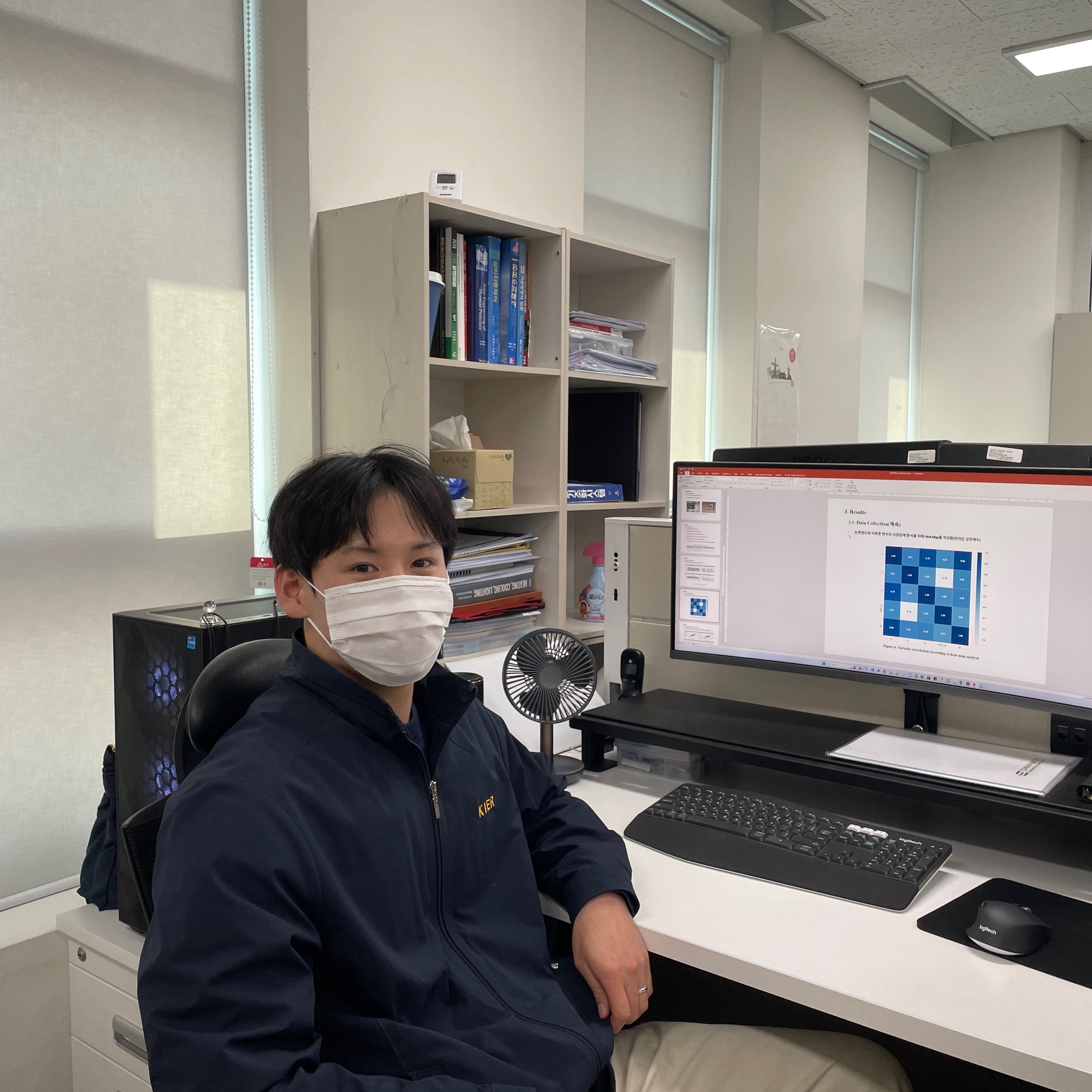KIER STORY
- Date
- 2023-03-28
- Views
- 2,232
Jeong Dong-eun, Student Researcher, Energy ICT Convergence Research Group
The main character of the 10th story is a student researcher Jeong-dong, who is recognized for his excellent research skills as the first author of "Approve level of development of in-situ building information modeling for existing building energy modeling improvement" in JABE within the top 10%.
Please introduce yourself.
Hello. This is Jeong Dong-eun, who is conducting research on building energy at the Energy ICT Convergence Research Group.
Mainly, we are conducting research on building energy diagnosis and reduction and incorporating various technologies such as carbon neutralization methods and artificial intelligence-based prediction and control algorithm development into building energy research.
Please introduce this excellent paper.
This paper proposes the appropriate level of development (Level of Development; LOD) of Building Information Modeling (Building Information Modeling; BIM) required in the field to implement Energy Modeling (Building Energy Modeling; BEM) of existing buildings.
Implementing BEMs and drawing up energy saving plans are essential because energy consumption continues to grow as buildings age.
Therefore, this study implemented 3D scanning-based BIM for existing buildings, and at this time, the BIM-BEM process was introduced to determine the appropriate LOD level of field BIM. The study found that the LOD level of field BIM for BEM implementation should be obtained at least 350 LOD.
Was there any special reason you became interested in the topic?
With the rise of energy savings and carbon neutrality, research on related element technologies is also being conducted in the building sector.
In recent years, digital twin (DT) technology has become a hot topic to achieve this in the building sector, and determining the appropriate LOD of DT is very important for energy and carbon emission analysis. My group of buildings, including myself, is conducting a wide variety of research to reflect the changing factors and to enhance the direction of the coming future architecture and are always interested in topics such as the paper.
Do you remember any episodes from the research process?
When I first entered the lab, I had a lot of anxiety about the research. I had no idea what to do or how to do it, and I couldn't shake off the uncertainty about whether I could do well. About two months after joining the company, Dr. Kim Jong-hoon, who is in charge of education, entrusted me with the topic of his thesis, and his anxiety was relieved as he conducted the research. I think I was able to overcome my early life as a researcher because Dr. Kim Jong-hoon and other members of the architectural organization helped me a lot and treated me comfortably. Time passed and the anxious past became my own episode now.
Were there any difficulties or obstacles in your research?
As I majored in architectural equipment engineering, it was very difficult at first because I tried to learn the overall architectural engineering of buildings, not systems. Of course, architectural equipment engineering is implied in architectural engineering, but there were many difficulties for me because I was biased toward facility systems. Still, thanks to the professor's waiting and helping me a lot, I was able to overcome many obstacles and solve the difficulties with a lot of help from the students I am studying with.
Do you have any memorable moments or unforgettable stories from your lab life?
While working at a research institute, I once suffered a broken cruciate ligament during external sports activities. I couldn't walk for about three months and was forced to leave, and at that time, I had a lot of business trips related to precision diagnosis. My team members worked so hard to go on business trips and experiment on my behalf, but they never gave me a hard time. Even now, I'm always sorry and grateful, but I remember that the most.
What I want to say in the end
Degree courses may be difficult and difficult, but efforts don't seem to betray you. If you focus hard on your studies and gain practical experience as a researcher, you will be able to become a high-quality human resource with a stronger foundation than anyone else.

